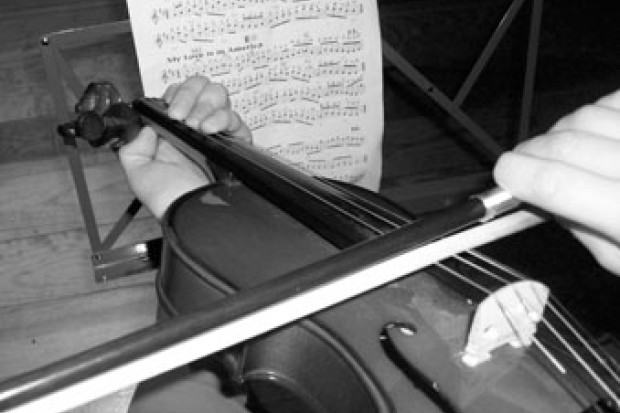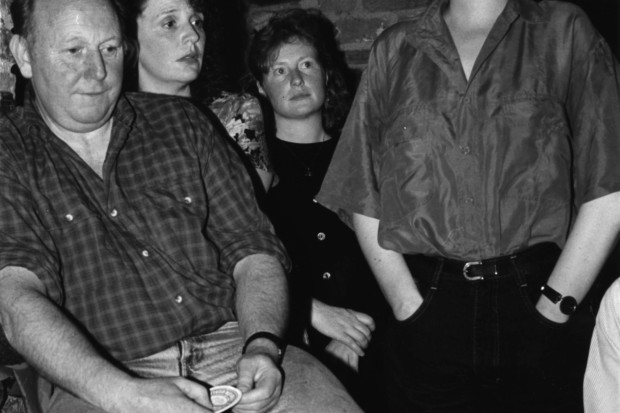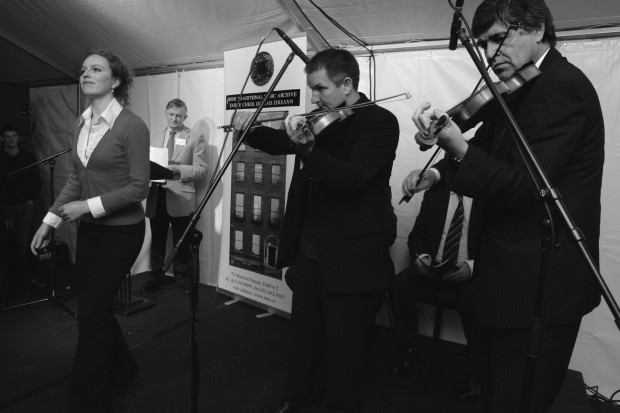CD Reviews: The McCarthys' Family Album
The McCarthys
The Family Album
Maree Music
The Family Album is a collection of traditional dance music recordings put together by the McCarthys, one of the most respected and highly regarded families in Irish traditional music. Jacqueline, Marion, Bernadette and Tommy recorded this album as a tribute to the music of their late father Tommy McCarthy Senior who played concertina, pipes and tin whistle and who sadly passed away in September 2000. They are joined on a number of tracks by their spouses, Henry Benagh, Tommy Keane, Johnny Giles and Louise Costello, all well-known and highly competent traditional musicians.
Tommy McCarthy Senior, to whom this recording is dedicated, was born in 1929 at Shyan, near Kilmihil in West Clare where he grew up surrounded by music. His mother played concertina while other important musical influences were neighbours Mick ‘Stack’ Ryan and Solus Lillis as well as the legendary Mrs Crotty who lived in nearby Kilrush.
Emigration has always been a fact of life for Irish traditional music with many of the country’s finest musicians and singers leaving Ireland’s shores for life in England or America. Like many before him, Tommy moved from West Clare to Dublin and from there to London which was to be his home for some forty years. His four children were raised there but, as with Tommy in the early days of his youth, they too were surrounded by the best of traditional music. They grew up listening to and playing music with such stalwarts of the vibrant London Irish music scene as Bobby Casey, Danny Meehan, Roger Sherlock, Paddy Taylor, Raymond Roland and many, many more.
The McCarthys were also regular visitors to County Clare over the years and there they met and played music with many of their father’s musical friends who had remained or returned home. During these yearly trips to Ireland the young McCarthys absorbed the music of some of the most important figures in the history of Irish traditional music, including Willie Clancy, Junior Crehan, John Kelly and Joe Ryan among others. The music played on this recording therefore is informed by years of immersion in the very heart of the tradition and by a rich and powerful legacy of music passed on to the McCarthy family by their father.
The album opens with the drone of the pipes and the classic piping tune ‘My Love is in America’ played by the four McCarthys. This evokes memories of their father Tommy who was an inspiration not just to his own family but to countless young musicians who were fortunate to have encountered this great man in classes at Scoil Éigse and at the Willie Clancy Summer School.
Track one is followed by two lovely hornpipes, ‘Poll Halpenny’ and ‘Mrs Galvin’s’ played in a duet which captures the very essence of the West Clare tradition from which these tunes come. And so it continues! Throughout the album we are treated to a sparkling twenty-two tracks featuring tunes that the McCarthys have been playing together as a family for over thirty years.
Reels, jigs, hornpipes, flings and even a set dance are included along with many unusual and highly distinctive versions of tunes. The repertories of great Clare musicians come alive as the listener travels on this musical journey with the McCarthy family while tune titles such as ‘Mrs Galvin’s’, ‘Scully Casey’s’, ‘Garrett Barry’s’ and ‘The Clare Reel’ indicate the strength of the connections this family have with the music of County Clare.
One of the most striking aspects of the album is the great versatility of this musical family. Pipes, concertina, fiddle, concert flute, tin whistle and button accordion can all be heard in group format, in the solo performances which showcase the individual musical expertise of each member of the McCarthy family, and in the duets that Jacqueline, Marion, Bernadette and Tommy play with their spouses.
The many fans of the music of Tommy McCarthy Senior will be delighted to hear three tracks from him on The Family Album. Two of these feature his concertina playing and were recorded in London during the mid 1960s, while Tommy plays tin whistle on the third track which was recorded in 1985. These tracks blend beautifully with the newly recorded material on the CD. The Family Album closes with a tune composed by the great Leitrim musician Charlie Lennon. Titled ‘Tommy McCarthy’s Jig’, it is another excellent example of the effortless and seamless combination of the old and the new so evident throughout this recording.
Anyone with any fears for the safety, integrity and survival of traditional music in its purest form will surely take great comfort from this CD. The music is crystal clear, uncluttered and played with a confidence born of many years spent listening to and playing a music for which this family shows the utmost respect. There is great variety both in the tunes selected and in the tune changes which add further zest to an already heady cocktail of music. Unaccompanied, apart from two tracks where Bernadette plays piano, the music is played at a steady unhurried pace reminiscent of the music played at the house dances where their father Tommy would have practised his craft. Indeed the listener has a sense of reaching back in time to the music of another era which, when played by musicians of the calibre of the McCarthy family, is as fresh and new today as it was when first heard around the house dances of West Clare.
The recording of music is like taking a photograph and as a complement to the title of this album photographs of the McCarthy family over the years as well as photographs of many of the people who have influenced their music are fittingly included. The Family Album was recorded in County Clare and is on the Maree Music label with production of the usual high standard one has come to expect from this label.
Published on 1 May 2003












